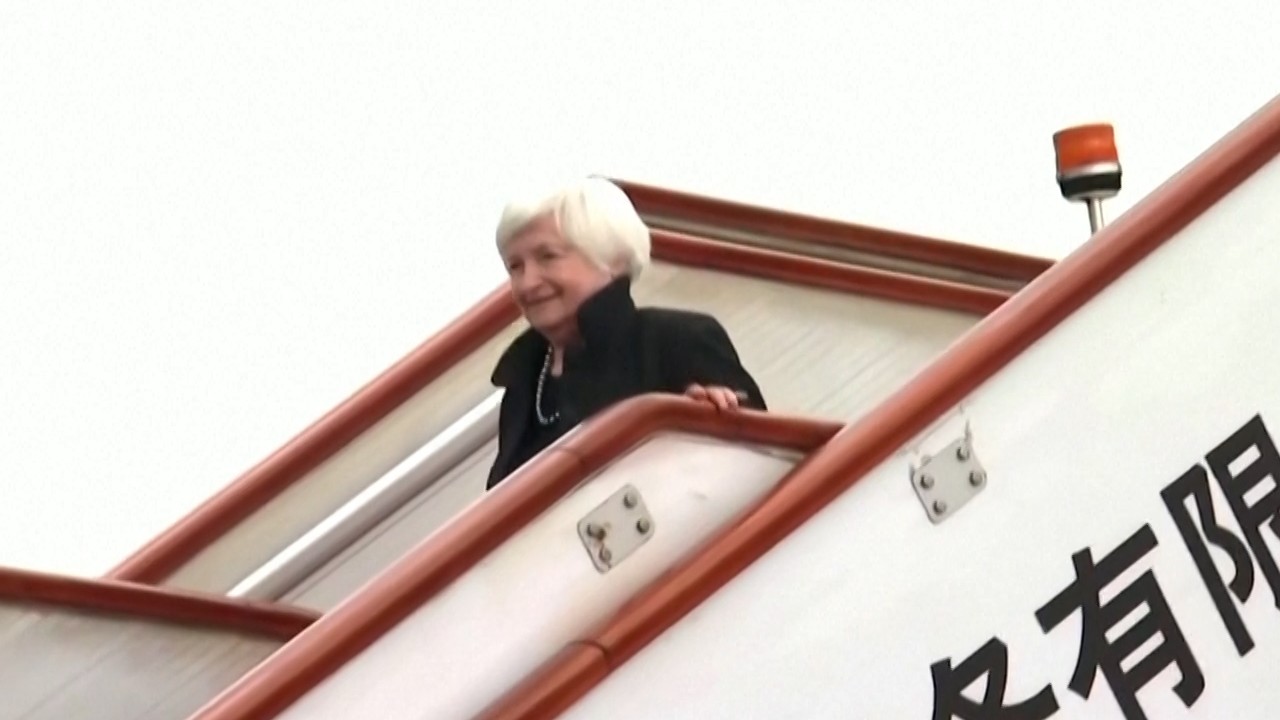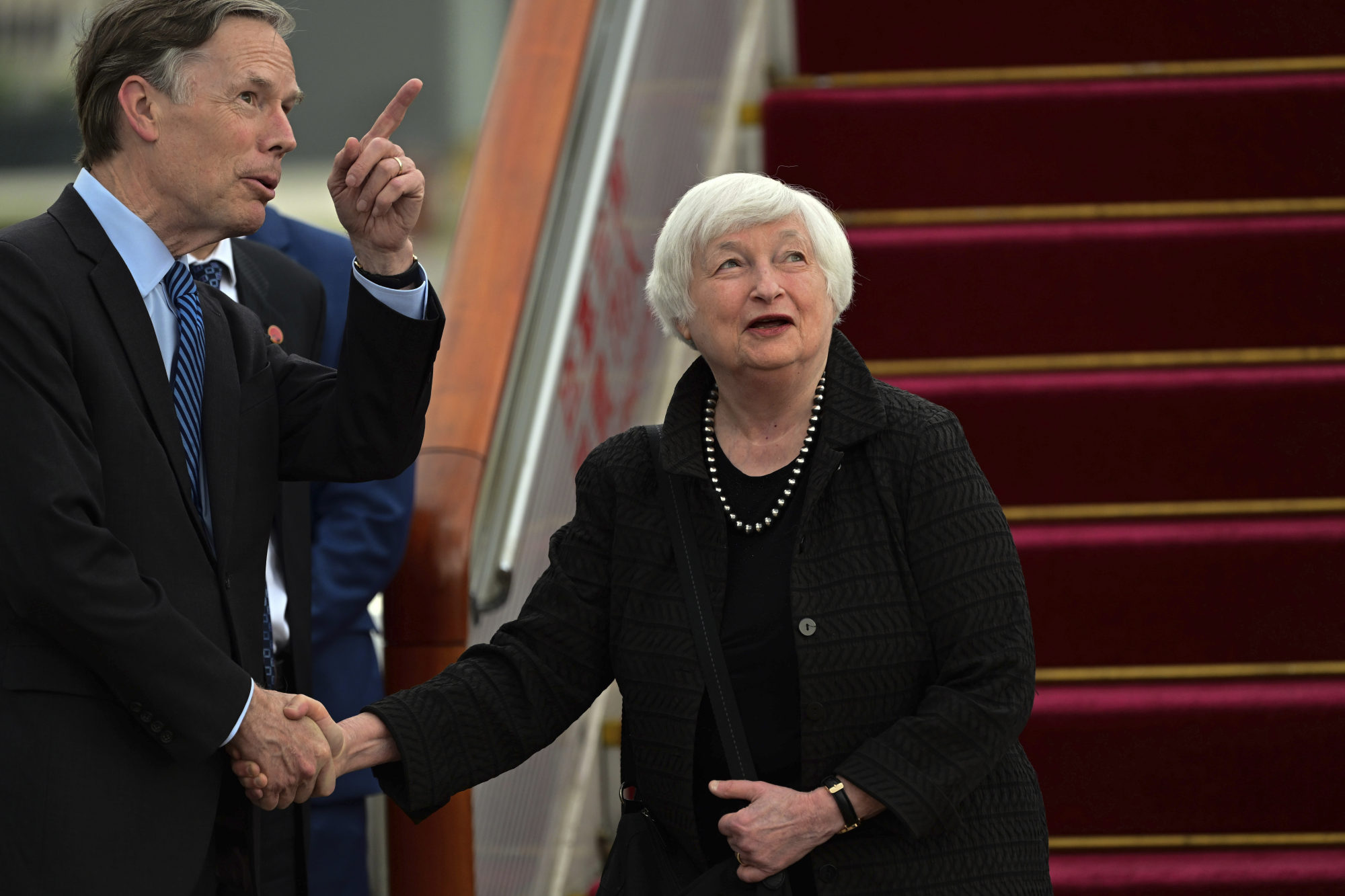
01:29
US Treasury Secretary Janet Yellen arrives in China in bid to ease Sino-American tensions
Explainer | US Treasury Secretary Janet Yellen in China: what to expect from her 4-day trip
- US Treasury Secretary Janet Yellen landed in Beijing on Thursday for a four-day visit to China
- She is set to meet senior officials to ‘work together to address global challenges’ during her first official visit to China
But what will the top financial official of the Biden administration discuss during her time in China?
What are the major Chinese concerns?
A widely cited demand from Beijing is to remove punitive trade tariffs imposed by former US President Donald Trump in 2018, as their removal is seen to benefit both countries.
The demand has raised speculation that US Secretary of Commerce Gina Raimondo, or other high-ranking officials, will also visit China later this year.
Beijing is also deeply concerned about escalating US tech curbs.

Also, Chinese authorities earlier expressed concerns about the fast interest rate increases by the US Federal Reserve, which are used to curb American inflation but also weigh heavily on emerging markets.
What are the US objectives?
The US Department of the Treasury has already said Yellen would discuss “the importance for our countries – as the world’s two largest economies – to responsibly manage our relationship, communicate directly about areas of concern, and work together to address global challenges”.
She has long been viewed by China as pragmatic and willing to cooperate on financial and economic affairs.
Stephen Olson, a senior fellow of Hinrich Foundation, said the visit is a step in the process of putting so-called guard rails in place to help prevent the bilateral relationship from deteriorating further.
“This is a key US objective, more so than any concrete deliverable,” he said.
Olson also said Washington wants to “ensure smooth waters” ahead of a potential meeting between US President Joe Biden and his Chinese counterpart Xi Jinping at the Asia-Pacific Economic Cooperation (Apec) forum in San Francisco in November.
What are the likely outcomes from the negotiations?
Chinese analysts generally doubt if there will be any concrete outcomes from the four-day visit, and questions remain over the true intention of US de-risking attempts.
However, the trip will help improve the overall atmosphere for further bilateral exchanges.
The real value of the discussions on the four-day visit may well be for each side to directly and fully explain its position on matters of unilateral or mutual concern
“The real value of the discussions on the four-day visit may well be for each side to directly and fully explain its position on matters of unilateral or mutual concern,” said Zha Daojiong, a professor of international political economy at Peking University.
“If the Yellen visit results in a declaration of a reciprocal visit by her Chinese counterparts to Washington, that would be a positive outcome, for both sides and third parties as well.”
Will the visit put US-China relations be back on track?
Rolf Langhammer, a professor at the Kiel Institute for the World Economy, said Yellen’s mandate is limited.
“She can clear the sky a bit and create a reasonable atmosphere, but even in economics and finance, the security issue overshadows the cooperation issue and has top priority,” he said.
Nothing that transpires during Yellen’s meetings will fundamentally alter those calculations,
Olson at the Hinrich Foundation warned that markets should not read too much into the visit and the overall resumption of high-level dialogue.
He added that policies in Washington will continue to be predicated on the assumption that China is a disruptive global force determined to usurp the US-led system.
But China’s policies, Olson added, will also continue to be predicated on the assumption that the US is determined to block its rise.
“Nothing that transpires during Yellen’s meetings will fundamentally alter those calculations,” he said.

